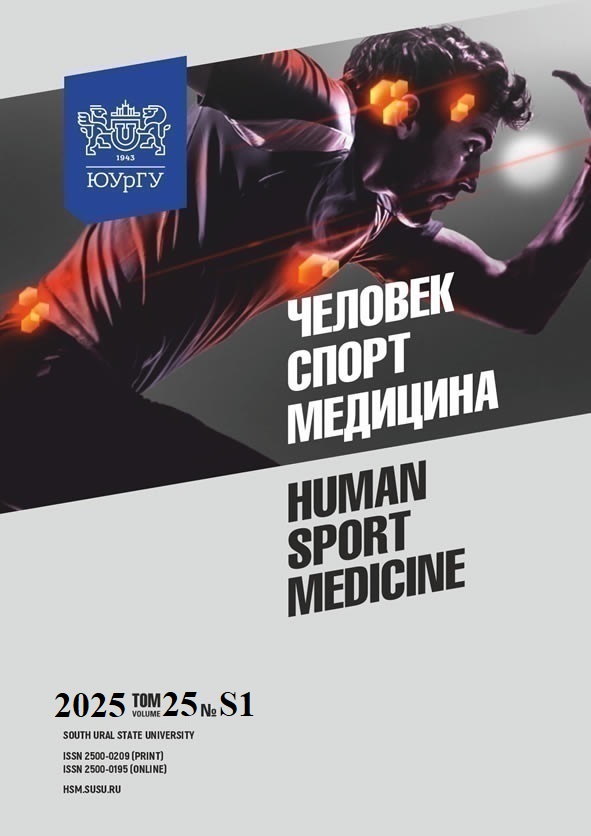MORPHOFUNCTIONAL CHARACTERISTICS, PHYSICAL PERFORMANCE, AND BIOCHEMICAL MARKERS IN YOUNG MEN WITH DIFFERENT LEVELS OF STRESS RESISTANCE AND NEGATIVISM
Abstract
Aim. To assess the morphofunctional and biochemical profiles of healthy young men with different levels of stress resistance and negativism under resting conditions and during an incremental step test to exhaustion. Materials and methods. This study involved 27 healthy, physically trained males aged 18–22 years. The degree of stress resistance and negativism was determined using specialized tests. Examinations were conducted at rest and during an incremental step test to exhaustion. Capillary blood samples were taken during 10–15-second pauses between stages and immediately upon exhaustion. To evaluate biochemical status, venous blood was collected before and 10 minutes after maximal treadmill exercise.
Results. Young men with low stress resistance and high negativism exhibited a less robust physique, weaker grip strength, shorter distance covered, lower total muscular work, and earlier exhaustion. The resting biochemical profile did not correlate with the severity of these psychological traits; however, after physical exhaustion, the degree of negativism had a more pronounced effect on the studied parameters than stress resistance. Conclusion. A comprehensive assessment of morphofunctional and biochemical profiles in young men with different levels of stress resistance and negativism demonstrated a significant influence of these psychological traits on physical performance.
References
References on translit
Copyright (c) 2025 Human. Sport. Medicine

This work is licensed under a Creative Commons Attribution-NonCommercial-NoDerivatives 4.0 International License.















